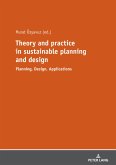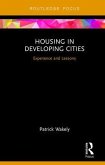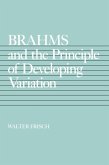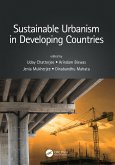Sustainability policy guarantee belongs to the most important tasks of architecture and construction of the new millennium.40% of the total energy consumption within the EU is used for heating and cooling of buildings. Only within Austria, one fifth of the total CO2-emissions are caused by buildings.The recent sharpened EC-requirements in terms of climate protection and CO2 minimization underline the necessity for development and application of innovative technologies for sustainable building.New strategies and assessment methods for sustainable planning and building are urgently necessary; however the implementation is hindered through several crucial problems.This book presents current issues the planning process and construction of sustainable buildings are facing, and researches the coherences of different parameters determining the sustainability performance of a building. Finally, a building performance evaluation strategy in terms of sustainability will be developed.
Bitte wählen Sie Ihr Anliegen aus.
Rechnungen
Retourenschein anfordern
Bestellstatus
Storno








